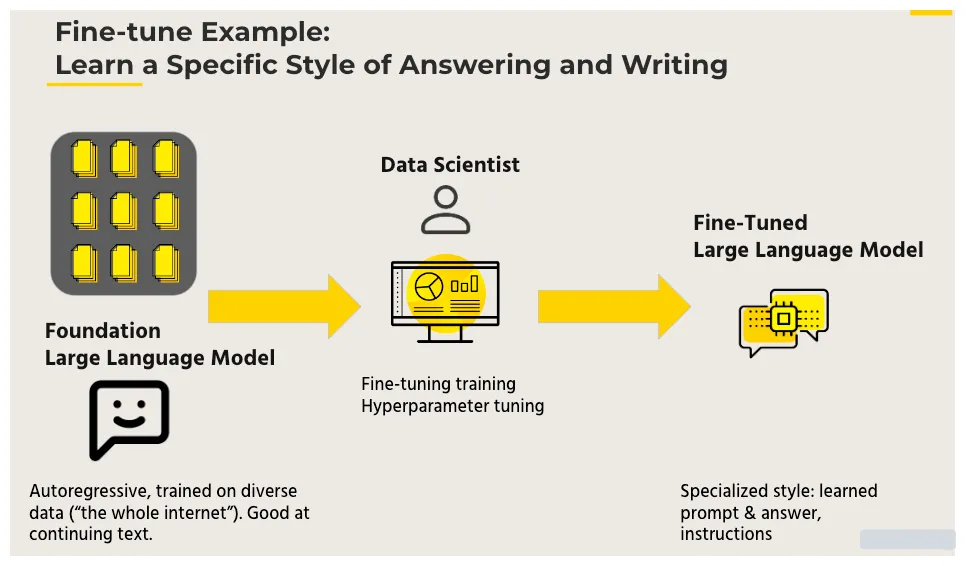Revamping Your LLM? There’s a Superior Approach to Fine Tune Your Large Language Model.
The next evolution in AI fine-tuning might transcend fine-tuning altogether. Vector databases present an efficient means to access and analyze all your business data. Have you ever received redundant emails promoting a product you’ve already purchased or encountered repeated questions in different service interactions? Large language models (LLMs), like OpenAI’s ChatGPT and Google’s Bard, aim to alleviate such issues by enhancing information-sharing and personalization within your company’s operations. However, off-the-shelf LLMs, built on generic internet data, lack access to your proprietary data, limiting the nuanced customer experience. Additionally, these models might not incorporate the latest information—ChatGPT, for instance, only extends up to January 2022.
To customize off-the-shelf LLMs for your company, fine-tuning requires integrating your proprietary data, but this process is costly, time-consuming, and may raise trust concerns. A superior alternative is a vector database, described as “a new kind of database for the AI era.” This database offers the benefits of fine-tuning while addressing privacy concerns, promoting data unification, and saving time and resources. Fine-tuning involves training an LLM for specific tasks, such as analyzing customer sentiment or summarizing a patient’s health history. However, it is resource-intensive and fails to resolve the fundamental issue of fragmented data across your organization.
A vector database, organized around vectors that describe different types of data, can seamlessly integrate with an LLM or the prompt. By storing and organizing data with an emphasis on vectors, this database streamlines access to relevant information, eliminating the need for fine-tuning and unifying enterprise data with your CRM. This is pivotal for the accuracy, completeness, and efficiency of AI outputs. Unstructured data, comprising 90% of corporate data, poses a challenge for LLMs due to its varied formats. A vector database resolves this by allowing AI to process unstructured and structured data, delivering enhanced business value and ROI.
Ultimately, a company’s proprietary data serves as the cornerstone for constructing an enterprise LLM. A vector database ensures seamless storage and processing of this data, facilitating better decision-making across all business applications.












